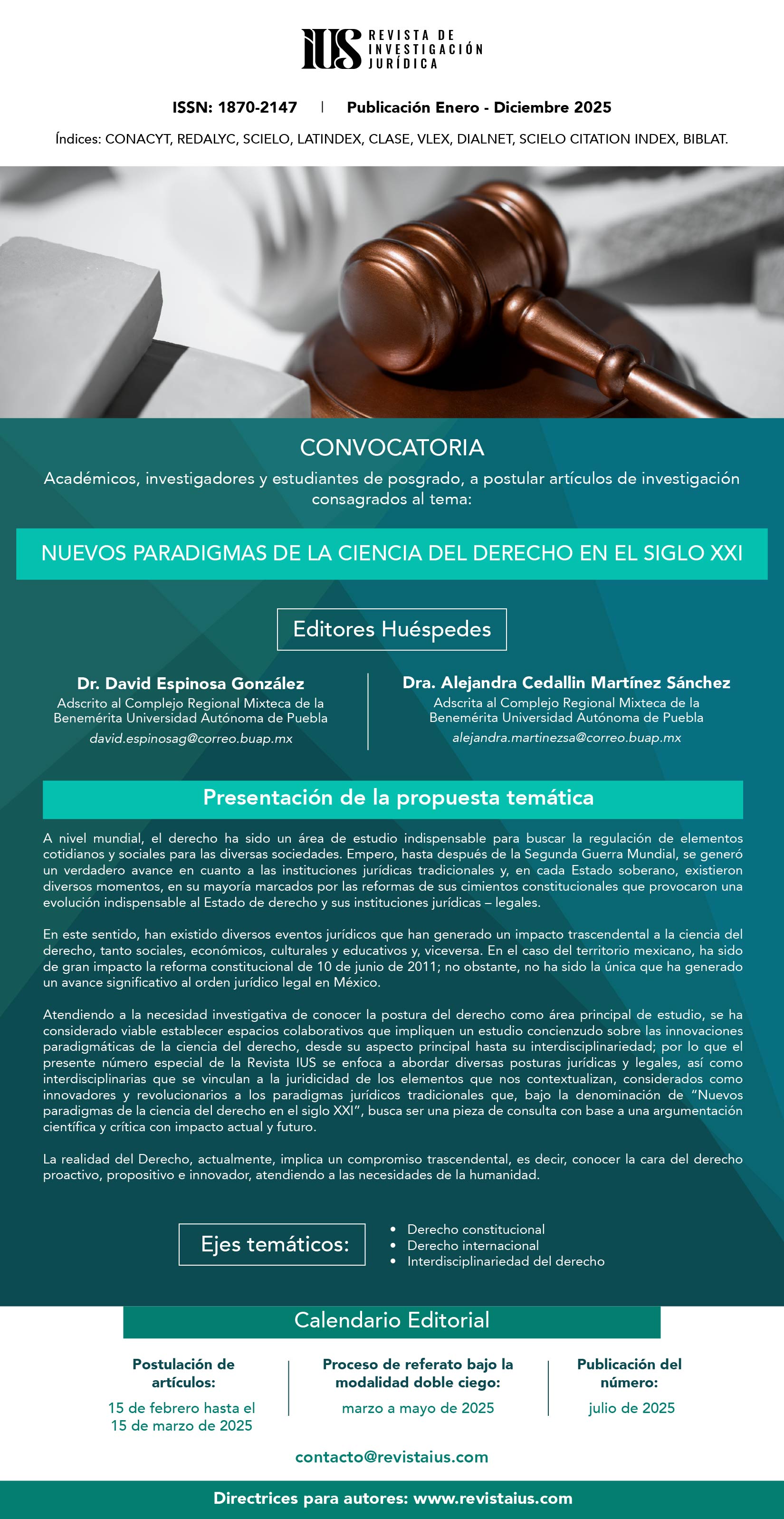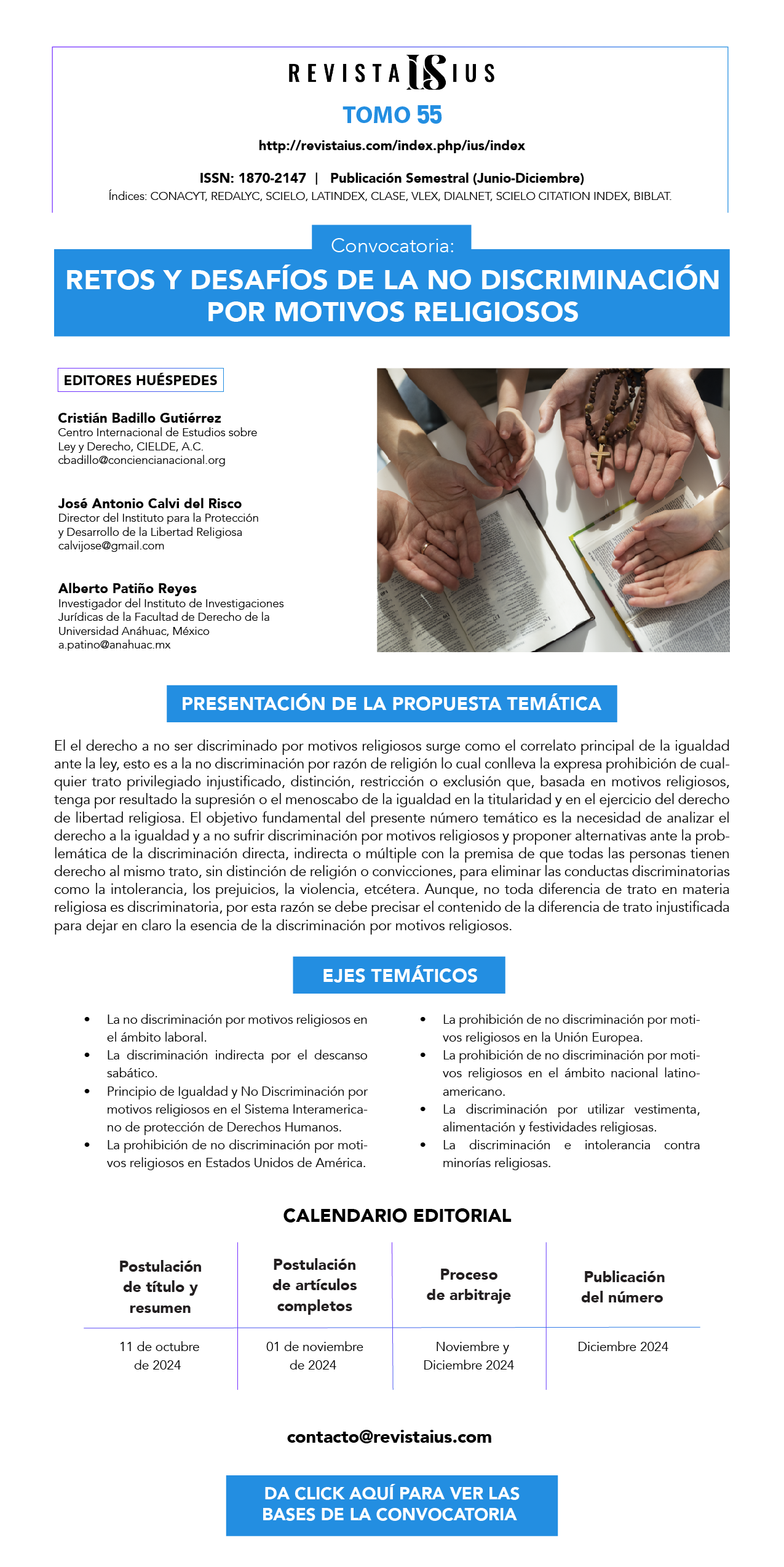The Right Of Participation Of Unaccompanied Children And Adolescents
DOI:
https://doi.org/10.35487/rius.v17i52.2023.928Abstract
Los Estados Parte de la Convención sobre los Derechos del Niño se encuentran obligados a desarrollar políticas, programas y planes concretos que promuevan el dere- cho de participación de la infancia y la adolescencia, favoreciendo el proceso de autonomía progresiva de sus derechos hasta su mayoría de edad, asegurando los espacios y recursos para el ejercicio pleno de su ciudadanía1. En este sentido, en España, los niños, niñas y adolescentes no acompañados, se enfrentan a un conflicto normativo al momento de arribar al país, donde su derecho a ser oído, y, por consiguiente, su derecho de participación, se ve mermado por la discre- cionalidad administrativa que puede emplear el Estado, al coexistir normas de carácter migratorio con normas que protegen los derechos de los niños, que permiten no considerar el interés superior de estos niños en las decisiones administrativas y/o judiciales que les afec- ten. Es por ello que, la presente investigación, pretende proponer una solución a este conflicto de intereses, mediante la efectividad del derecho a participación de estos niños y adolescentes no acompañados.
Downloads
Downloads
Published
Issue
Section
License

This work is licensed under a Creative Commons Attribution-NonCommercial-ShareAlike 4.0 International License.
Revista IUS, published by the Legal Sciences Institute of Puebla A.C., is distributed under the Creative Commons Attribution-NonCommercial 4.0 International (CC BY-NC 4.0) license.
We authorize collaborators to upload a copy of their published work on their personal websites or any Open Access repository, provided that Revista IUS is specifically cited as the original source, indicating the year and issue of the respective example and adding the link to the webpage on which this publication can be freely consulted in toto and without charge: http://www.revistaius.com
Readers are free to:
Share, copy and redistribute the material via any medium or format.
The licensor cannot revoke these freedoms as long as you follow the license terms.
Under the following terms:
Attribution: You must give appropriate credit, provide a link to the license, and indicate if changes were made.
You may do so in any reasonable manner, but not in any way that suggests the licensor endorses you or your use.
NonCommercial – You may not use the material for commercial purposes.
If you remix, transform or build upon the licensed material, its distribution is not permitted.
Charges for managing articles: Revista IUS will not charge for receiving, processing or publishing articles (Article Processing Charge, or APC) submitted by authors.





